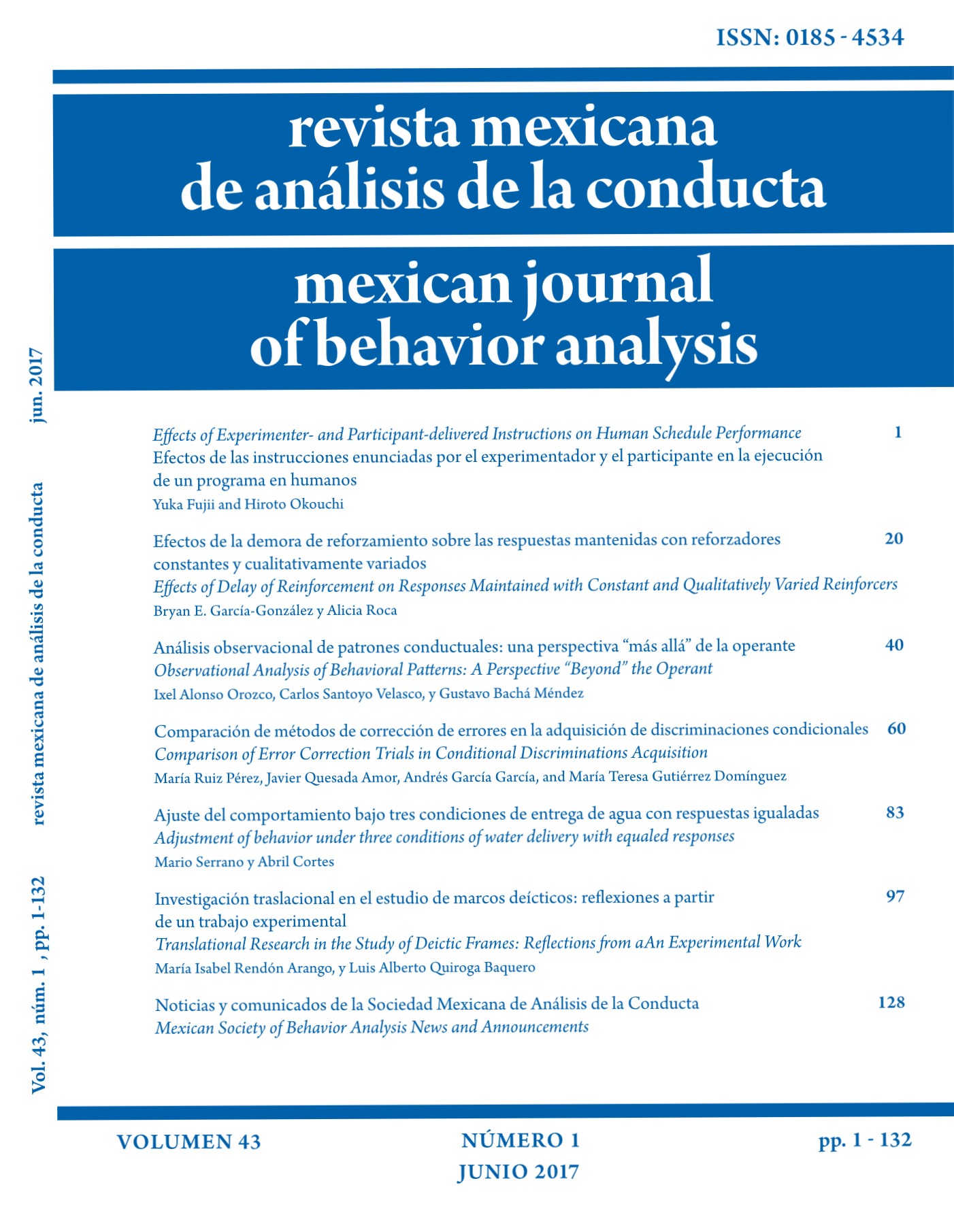Effects of Experimenter- and Participant-delivered Instructions on Human Schedule Performance
Main Article Content
Abstract
The experiment examined effects of instructions on human schedule performance when providers of the instructions were persons other than the experimenter. Pressing a key by one member of each pair of eight undergraduates produced points on a multiple fixed-interval (FI) FI schedule.Another member of the pair was exposed to a multiple fixed-ratio (FR) differential-reinforcement-of-low-rate (DRL) schedule. After every session, verbal descriptions of how to increase points written by another member of the pair were presented.The final response rates under the multiple FI FI schedule were indistinguishable between the two components in each of four participants although they each received verbal descriptions indicating that the way to increase points with the key was to respond rapidly in one component and to respond slowly in another. Such weak effects of instructions given from persons other than the experimenter were contrasted with stronger effects of instructions given by the experimenter, that is, the final response rates were higher with the instruction to respond rapidly than with the instruction to respond slowly for three of the four participants.This differential effect across the instruction providers was not found in each of four participants who were exposed to the multiple FR DRL schedule.
